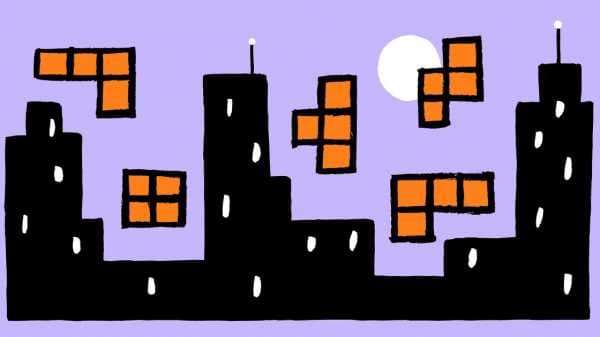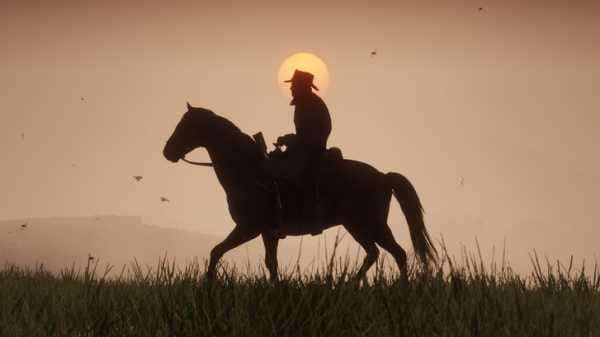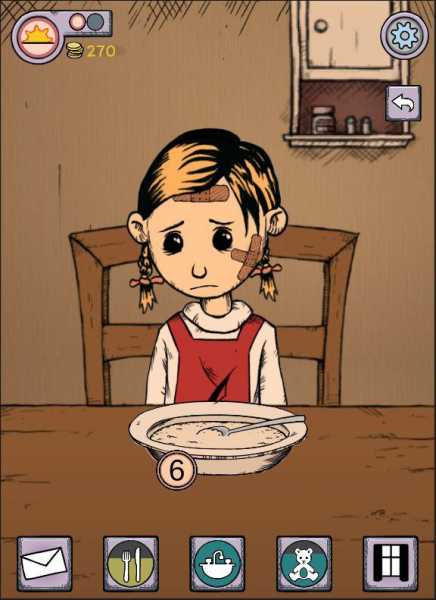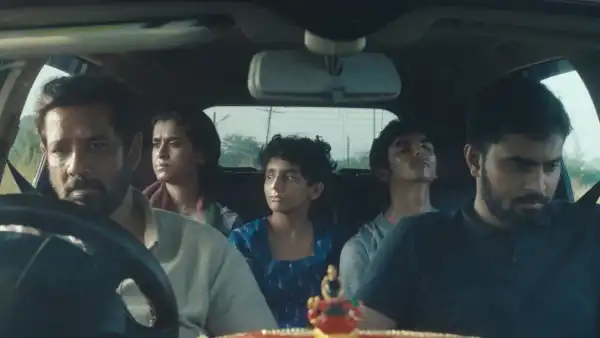
In recent years, members of the alt-right have, in blog posts and in YouTube videos, courted young men who share an interest in video games. (The wooers include Steve Bannon, when he was the executive chairman of Breitbart News, and the former Breitbart editor Milo Yiannopoulos, who churned out posts with titles such as “Feminist Bullies Tearing the Video Game Industry Apart.”) This scheme has proved effective. Last month, a YouTube user uploaded a clip from the recent blockbuster video game Red Dead Redemption 2, a cowboy playpen set in the late-nineteenth-century American Southwest. In it, the player guides his character toward a computer-controlled suffragette who is campaigning for her right to vote, and punches her unconscious. The video, titled “Beating Up Annoying Feminist,” has been viewed more than 1.7 million times, with a chorus of support in the comments below.
This kind of trolling can easily escalate. Earlier this month, NPR broadcast a story in which a father recounted his dismay at finding a neo-Nazi pamphlet that his fifteen-year-old son had printed out after being encouraged by fellow-gamers. “I was crying,” the man said. “I felt like a failure that a child that I had raised would be remotely interested in that sort of stuff.”
The cultural problems around video games, of course, inhere not just in their young players but in their creators. There remains a woeful lack of diversity among those who design video games, and, in the industry at large, among those who decide what kinds of games are made in the first place. But the tectonic plates still shift, slowly, and, at the edges, work of intelligence and interest is produced. While 2018 was hardly a vintage year for video games, there were releases that nevertheless excited, stimulated, and challenged their audiences to think for themselves. Here are nine.
Return of the Obra Dinn (PC, Mac)
The Obra Dinn, an East Indiaman merchant ship, was thought to be lost at sea until, one day in 1808, a vessel bearing its name drifts into port. As an insurance-loss adjuster, you must figure out what happened to the crew members, whose bodies litter the ship’s nooks and decks. Much like Papers, Please, the designer Lucas Pope’s previous game, in which you played as an agent at an Eastern European border checkpoint, the story is told through the lens of a mundane vocation. This time, however, there is a touch of the mystical: a magic pocket watch, found in a casket dredged from the sea, enables you to trigger a flashback whenever you happen upon a corpse. You can then trace the person’s final moments in a frozen diorama, and unearth both his identity and cause of death. The game’s scratchy, black-and-white art style, a tribute to the Mac Plus, uses blank space and dots to create the illusion of shading. It’s the ideal aesthetic for a story in which you work to shake a picture from the noise.
Tetris Effect (PlayStation 4)
Despite more than thirty years of effort, Tetris’s sequels have, in the main, failed to supersede the original. Designed in 1984 by the Russian engineer Alexei Pajitnov, Tetris, as most people know, requires one to stack a cascade of tetromino shapes as they descend into a bucket. Form an unbroken line across the width of the bucket and the line disappears, creating more room. It’s an idea that arrived so perfectly formed that no designer has managed to improve it. Until, that is, Tetris Effect, which was designed by the Japanese musician Tetsuya Mizuguchi. Mizuguchi adds to the game a layer of musical notes and effects, which harmonize with both the dance soundtrack and the movement of the pieces. The result is a game in which every moment fizzes with wonder. Like Disney’s “Fantasia,” which yoked animation to music, it’s a simple idea that, through exquisite execution, elevates Tetris to something novel and thrilling.
Red Dead Redemption 2 (PlayStation 4, Xbox One)

Red Dead Redemption 2 / Rockstar Games
In film, television, and, to a lesser extent, literature, storytelling is the business of imposing order on the chaos of life. Usually, this involves editing out the extraneous bits. By contrast, Red Dead Redemption 2, the latest game by the Grand Theft Auto creator Rockstar, seeks to embellish its essential story—which follows a group of outlaws in the twilight of the Old West—with endless, intricate diversions. From bear hunting to dominoes, debt collecting to heavy drinking, the extracurricular expanse is at once exhilarating and faintly exhausting. But it also establishes a keen sense of time and place, one that’s more tactile than anything in film or on TV. In fact, most of the wonder is found when one wanders off-script: if you prefer not to rob a train, you can perch on top of one of its carriages as the world lazily puffs by. It’s a notable leap forward for the open-world video game, but its success may have come at the cost of those who created it. (Its launch was dogged by stories of Rockstar’s exploitative working practices.)
Into the Breach (PC, Nintendo Switch)
A claustrophobic riff on chess, Into the Breach asks you to nudge and shunt three robots around an eight-by-eight grid, taking turns to do battle with giant earthworms called Vek. The sci-fi theme is, broadly, irrelevant. This is a knotty little strategy game, as elegant and carefully calibrated as any of the board-game greats. With no time limit to hustle you toward action, there is time to consider each move and its knock-on consequences, which ripple not only across a given battle but through the entire campaign as you seek to build up your arsenal for the final showdown. What makes Into the Breach unique is that you can see what move each Vek will make next, and in what order. This allows you to foil their plans, shunt them into positions where their attacks will miss, or mitigate inevitable losses. For a game with such a modest canvas—each battle lasts just five turns— these dynamic, shape-shifting puzzles have time-gobbling depths.
Florence (iOS)
Florence, a wordless, illustrated story about the bloom and wilt of a twentysomething woman’s courtship, has only a light seasoning of interaction, and no capacity for its player to change the course of the story. In this way, both player and protagonist share—from the first shoots of attraction to the monotonous routine of a long-term relationship—a sense of inevitability. We share, too, the unthinking to-dos of domesticity: tidying the cluttered shoes, bagging the groceries, brushing teeth. These idle, near throwaway interactions, when taken in concert, build a truthful portrait. Beneath the surface, however, this is a story of the moment. Florence shows a woman stifling her creative urges to support those of the man she loves. The understated narrative, presented in a way that borders on twee, but never trite, contains themes of surprising weight and consequence.
My Child Lebensborn (iOS)

My Child Lebensborn / Teknopilot
The Nazi program of Lebensborn was a kind of inverse Holocaust: it involved the systematic nurture of life according to race. Unmarried Aryan women, some as young as sixteen, were made to carry the babies of S.S. officers. An estimated twelve thousand of these children were born in occupied Norway; after the war, many of them, who had been taken from their mothers at birth, were given up for adoption. In My Child Lebensborn, you assume the role of one of these adoptive parents, nurturing the social, emotional, and educational well-being of your child in a community where both of you have been cruelly ostracized. The game works like a Tamagotchi. You must keep your child clean, fed, and watered at regular intervals. The greater challenge resides in meeting the children’s emotional needs, as you help them deal with persistent bullying and advise them on whether to make contact with their biological parents. The game brings what is to many a historical footnote into sharp relief, and over time presents an affecting picture of the fragility of every child’s spirit, and the ease with which it can be ruined by adult will.
God of War (PlayStation 4)
The aesthetic is that of Homeric myth, with all its gore and shrieking sinew, but the narrative reflects more contemporary concerns—namely, the ways in which toxic masculinity can prevent fathers from showing love to their sons. The hero, Kratos, is something of a reborn video-game protagonist: in his previous six outings, he was no more than a monosyllabic muscleman. God of War, like its forebears, treats violence as pornography, but it also has a narrative heft, and the dynamic between Kratos and his son, as they undertake a journey to scatter the boy’s mother’s ashes on a giant mountain, is tenderly observed. In the age of the strongman, it’s revitalizing to see a powerful man explore emotional vulnerability as a martial art. And, when the psychodrama threatens to grow weary, the game is always ready with the next god or monster who needs taking down.
Forza Horizon 4 (Xbox One)
There is pleasure to be had, of course, in driving a glittering array of supercars within a video game, where insurance premiums are yet to be found. But the real joy in the fourth game from Playground Games—a studio based in the nondescript English town of Leamington Spa—is the chance to drive those cars across the British countryside, from the wuthering Devon moors to the cobbled majesty of Edinburgh. The game plays down the realism, allowing you to hurl even the lowest-slung Italian sports car over rocks and dales, perhaps while listening to Bach’s Air on G String on the in-game radio. Racing games are ten-a-penny in this business, but no one makes them quite like the British. The Playground team, freed from having to locate their work in, say, Colorado or on the Nürburgring, have made a game that exudes a love for their homeland, in all its green, pleasant, and now tire-wrecked wonder.
Monster Hunter: World (PlayStation 4, Xbox One)
Monster hunting has been a theme in video games since Pokémon challenged us to catch ’em all. But Monster Hunter: World takes its cues from older source material, namely Victorian classics, such as Jules Verne’s “Journey to the Center of the Earth” and Sir Arthur Conan Doyle’s “The Lost World.” You arrive in a forgotten continent filled with exotic megafauna, which must be stalked, lured, hunted, and, finally, either captured or killed, depending on whether your predilection is to study or destroy. Unlike most action games, which send you, blade extended, pirouetting through hundreds of enemies on the battlefield, here your prey is singular, and hard to take down. Hunts, which can be undertaken solo or with friends online, can take more than an hour, a delay that only heightens the sense of euphoria when you finally fell the beast. In a world that’s been meticulously plotted by satellites, here is a rare chance to rediscover the undiscovered.
Honorable Mentions
Minit (PlayStation 4, Xbox One, Nintendo Switch, PC)
Spider-Man (PlayStation 4)
Dead Cells (PlayStation 4, Xbox One, Nintendo Switch, PC)
Celeste (PlayStation 4, Xbox One, Nintendo Switch, PC)
Sourse: newyorker.com






